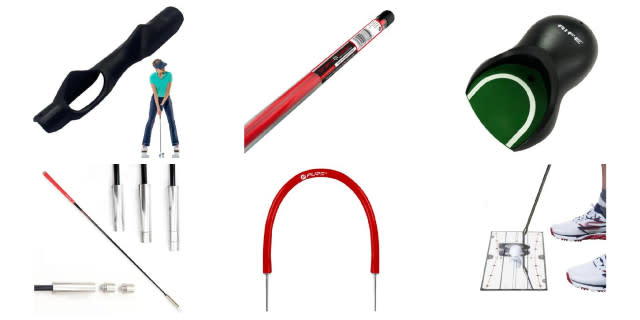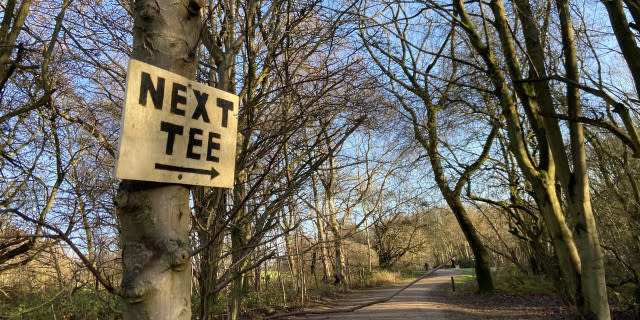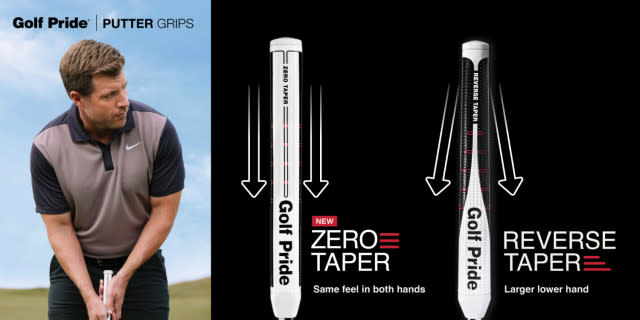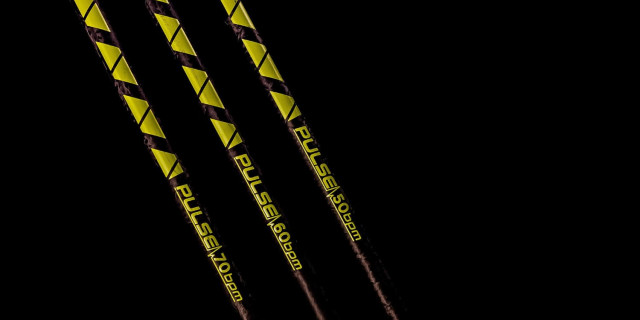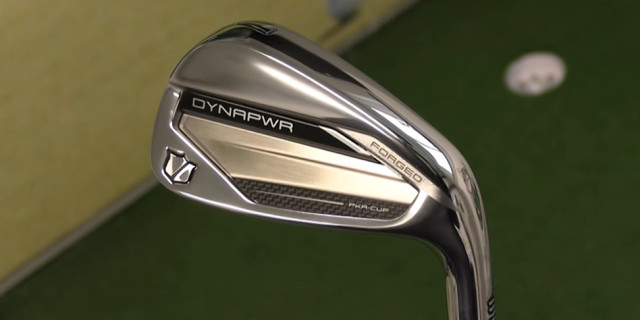
Do You Need a More Forgiving Driver
Getting the right driver in your hand is a foundation to play better golf. Finding more fairways - especially if you can align that with a few extra yards - is a key factor when it comes to improving your scoring on the course and lowering your handicap.
These days, golf club manufacturing has gone to another level, with the technology built into drivers being among the hottest topics in the game as the leading brands look to find an edge in this most competitive of markets.
No matter who you are, golfers would love to hit the ball longer and straighter. Achieving that will take a lot more than just buying an expensive driver, but having the most suitable driver in your bag can make a substantial difference.
Drivers are now tailored for a wide spectrum of players, with lower spin models being ideal for those golfers with faster swings, while more forgiving drivers are available to offer that extra support that the majority of players will likely benefit from.
- What is Your Golf Handicap?
- How Fast is Your Golf Swing?
- Do You Know Your Angle of Attack?
- What Makes a Driver More Forgiving?
- Do You Need a More Forgiving Driver?
- The Best Forgiving Drivers of 2025
- The Best Drivers For Most Golfers in 2025
- The Best Drivers For Low Handicap Golfers in 2025
Having the ideal driver for your game can be a life-changer on the golf course and could be the difference between you unlocking some hidden potential or not.
But are you a golfer who requires one of these most forgiving drivers? It's a question to answer before your next purchase, and we have taken a look at the factors you have to consider when making that decision.
What is Your Golf Handicap?
It might appear simplistic, but the most straightforward way of judging your driver suitability could be simply focusing on your handicap, which you can accurately track on Golfshake.
Golfers with handicaps in the 20s and above would clearly be viewed as being higher-handicappers, meaning that the likelihood is that more forgiving drivers would be perfect for you as opposed to those models that have been engineered with tour players in mind.
Those in that middle category, which is where the average golfer resides, with handicaps between roughly 10 and 20, will be considered mid-handicappers, and there are standard models of drivers out there that combine the best of both worlds, between the optimum in forgiveness and the workability of a lower spin club.
It goes without saying that if you're someone with a single-digit handicap, especially those edging closer towards scratch, then the drivers that you see the best players on the planet deploy could be a realistic option for you.
Your handicap is a solid way to judge whether a more forgiving driver could be for you, but it's not the only factor to chew over.
How Fast is Your Golf Swing?

(Image Credit: Kevin Diss Photography)
When it comes to distance, speed is a vital ingredient. This was a topic recently explored by Golfshake's Equipment Expert, Ryan Rastall, who experimented by hitting shots with various speeds to see the impact it had on the yardages he reached.
Golfers on the PGA Tour will average around 115mph with their driver in hand, which is beyond what most everyday golfers could achieve, with a common speed for the majority of us being somewhere between 80 and 95mph.
Age is a factor too as older players typically won't swing the club as speedily as those younger golfers, meaning that they are more likely to benefit from a forgiving driver.
Male senior golfers will have swing speeds that dip into the 80s or even high 70s, as will higher handicaps and many female golfers, making them candidates for a driver with greater forgiveness attached.
Do You Know Your Angle of Attack?
However, speed isn't everything. You could be above average when it comes to that, but the path of your swing can hugely limit what you gain from it.
The angle you attack the ball can have a notable impact on the spin rate of your driver and consequently the yardage it reaches. Slicing the ball with an out-to-in swing path is common with club golfers and those players would benefit massively from the tech featured within forgiving drivers to address their limitations.
What Makes a Driver More Forgiving?
When you read the marketing and information concerning forgiving drivers, you will frequently see MOI mentioned. This stands for Moment of Inertia, which is essentially the measurement of how much a clubhead twists at impact.
During recent years, we've regularly seen some drivers labelled with a MOI of 10,000. Ultimately, the higher the MOI on your driver, the more it resists, making the club more forgiving to hit. These drivers boast a larger sweet spot, with the higher MOI meaning that the club will be more stable when you hit a poor shot.
We mentioned above how a significant proportion of golfers will be natural slicers of the ball due to their technique and swing path. The most forgiving drivers have been crafted to combat that by featuring Draw Bias. The drivers categorised as such have been designed to help straighten shots by placing more weight towards the heel of the club, which means that the centre of gravity is closer to the shaft to encourage the face to be more square at impact.
Do You Need a More Forgiving Driver?
If your handicap is higher, your swing speed slower, and your regular shape being a slice, then you most probably need a more forgiving driver.
That said, the only way to really know is by being custom fitted and having your swing and numbers analysed by a qualified professional as there can be inconsistencies when determining who is really suitable for a change of driver category.
You could be a golfer with a lower handicap who doesn't believe that a forgiving driver is truly for them, only to discover during a fitting session that it could make your game even better.
There is no such thing as one-size-fits-all in golf, so you really need to take the time to ensure that your decision is fully educated.
The Best Forgiving Drivers of 2025
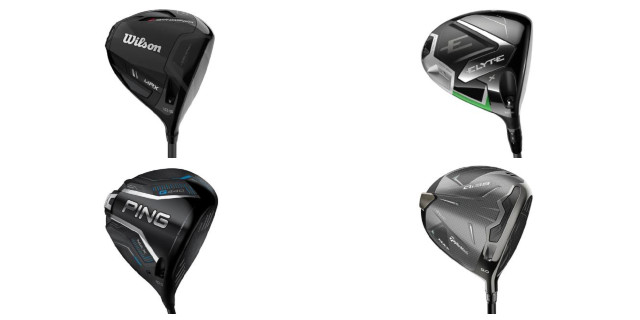
Having read all of the above and now believing that a forgiving driver is for you, the PING G440 Max, TaylorMade Qi35 Max, Wilson DYNAPWR Max, and Callaway Elyte X are among the models from this year that come instantly recommended for senior golfers and higher handicap players.
The Best Drivers For Most Golfers in 2025
When it comes to judging those drivers that could be most suited for the majority of golfers out there, Ryan tested extensively the PING G440 Max, TaylorMade Qi35, Wilson DYNAPWR Max and Callaway Elyte, and can you see that there is some crossover with the most forgiving drivers, just showing how fluid this process can be to marry you with the perfect club.
The Best Drivers For Low Handicap Golfers in 2025
If you're someone with the speed and technique of a low handicap golfer, then you can likely discount much of what's been featured in this article, but when studying those drivers that were ideal for better players, Ryan turned his attention towards the Callaway Elyte Triple Diamond, TaylorMade Qi35 LS, and Wilson DYNAPWR LS Carbon.
Related Content
The Best Drivers For Slower Swing Speeds 2025
The Best New Drivers For Most Golfers
About the author

Kieran Clark is the Digital Editor of Golfshake. He oversees editorial content, community engagement, forums, and social media channels. A lifelong golfer from the Isle of Bute in Scotland who has now lived in St Andrews for a decade, he began playing at the age of five and maintains a passion for exploring courses, with a particular affection for historic layouts. Kieran regularly contributes in-depth opinion pieces and features, drawing on his enthusiasm for the game and its culture.
Tags: review golf gear Golf Equipment Golf Drivers drivers daily picks





